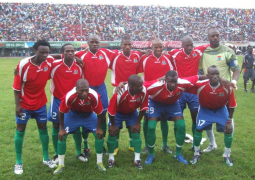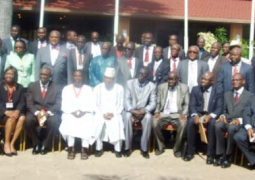Voters in Guinea Bissau went to the polls on Sunday to elect a new president, after the death of former President Malam Bacai Sagna in January this year following a long illness.
Among those seeking the top job is former prime minister Carlos Gomez Junior, who opposition figures accused of marring the poll by refusing to update a voter register from 2008, leaving more than 100,000 off the rolls. Kumba Yala, a former president, and other candidates are also contesting.
Guinea Bissau is no stranger to political violence. Its political history has been mired in intrigue, cold calculation and outright violence since its political independence from Portugal.
The challenges to stability, according to reports, are huge in a country whose main official export is cashews. An ordinary Bissau Guinean lives on less than $2 a day, and a combination of military meddling and health problems has prevented any president from serving a full term, since multi-party politics began in 1994.
Analysts have blamed the country’s army for the perennial instability that has left the mineral-rich nation weak, poor and vulnerable to economic predators of questionable stuff and means.
As they move through these elections, the people of Guinea Bissau should have at the back of their minds that there is nothing better than living in peace and stability.
Also, the army in Guinea Bissau should understand that coup d’etat is a treasonable offence, and an unacceptable means of changing a government.
No matter how unpopular, despotic, inept, corrupt, wanting in vision a government or a leader may be, resorting to the barrel of a gun to overturn that system is undemocratic and unacceptable.
We needn’t be reminded that undemocratic means of changing governments could have comprehensive and far-reaching consequences for a country.
These may take the form of sanctions, shying away of investors, setback in the democratic process, instability, among other consequences.
We are of the firm conviction that those who have staged a coup or planning to stage one must be made to understand that the wish of the people is supreme, and should always be allowed to assert itself.
If Guinea Bissau is allowed to be a failed state, the consequences for the sub-region would be incalculable.
We should all be concerned about the instability, and the state of democracy and human rights in Guinea Bissau.
It is also important to observe that Africa is almost imperceptibly sliding into a quasi-monarchy where sons are lined up to take over from their fathers. It started in Togo; it now seems to be gaining currency. This is wrong. It is an insidious way for leaders who do not want to quit power to hang onto power even after their death, as power is kept within the family.
The Guinean people should ensure that they elect a leader who will work hard to distribute equitably their resources for the common good, clamp down on rampant narcotics trafficking that has made it the main African transit point for South American cocaine bound for Europe.
Other parts of the world that are rich in mineral resources use their huge wealth for the benefit of the people. It is only in Africa that resources, especially oil wealth, have turned out to be a curse rather than a blessing.
Under a well-focused leader operating within the framework of an open society, the wealth of Guinea no matter how small it is could and should be harnessed for the good of its citizens, who paradoxically live in poverty amidst great wealth.
“May peace prevail in Guinea Bissau”
Anonymous
Read Other Articles In Article (Archive)

Training on psychology leadership for security forces kicks off
Nov 24, 2010, 11:58 AM



